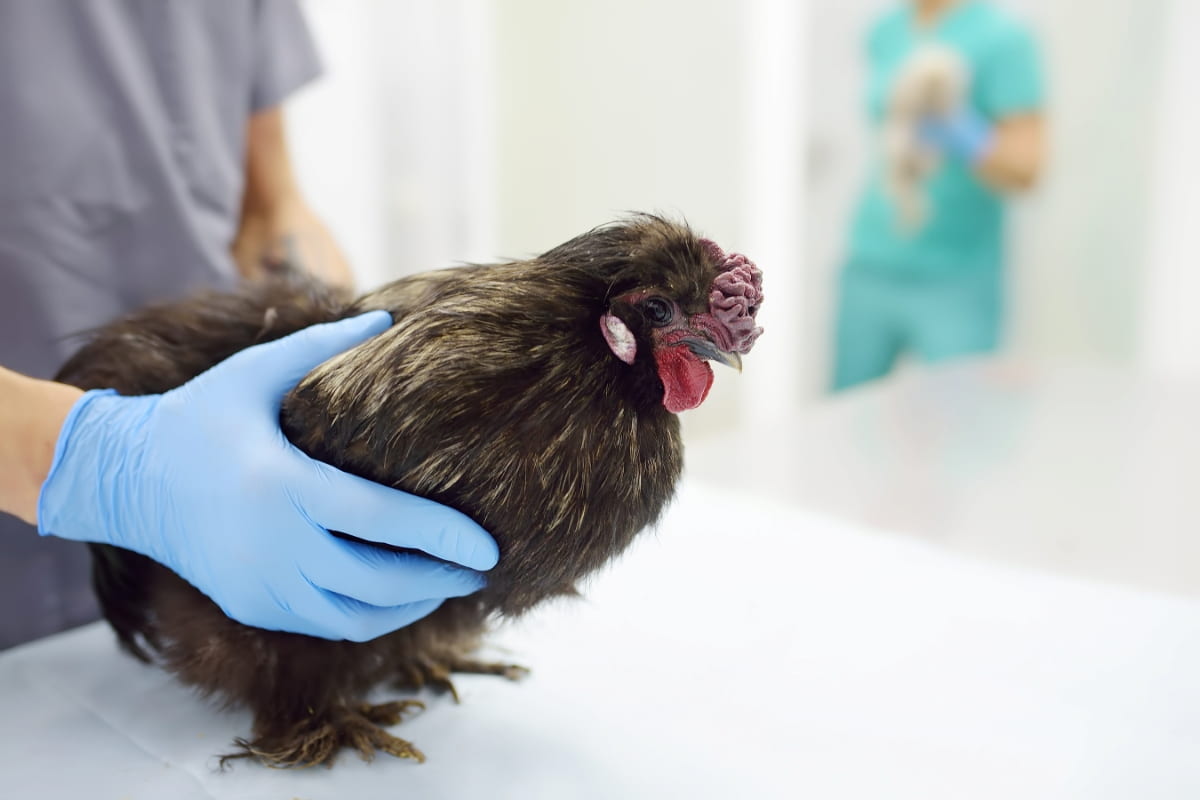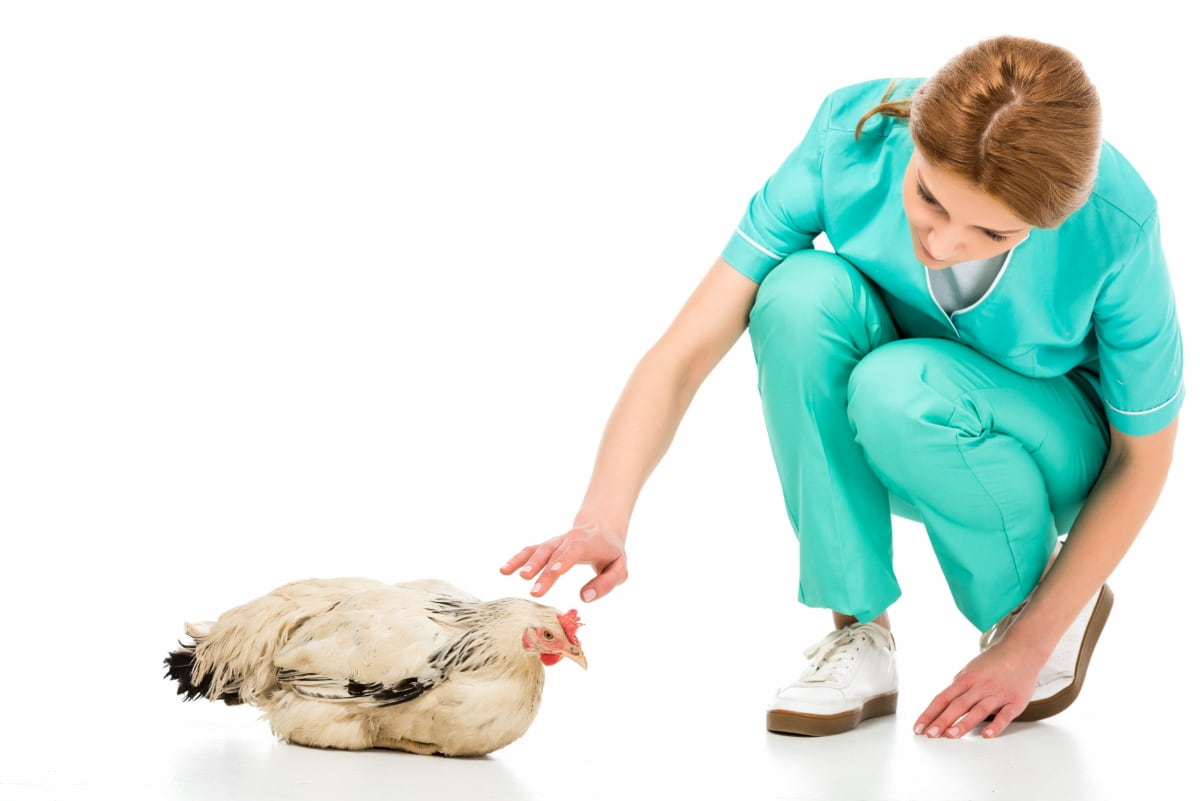The health of our backyard and free-range chickens is a crucial element of a robust, successful poultry environment. A common condition that impacts our feathered creature’s health is a disorder known as sour crop. Sour crop, an infection that can lead to serious health issues and, if left untreated, may prove fatal, poses a significant challenge for poultry keepers. As you dive into understanding how to treat sour crop at home, it’s important to know their causes, symptoms, treatment options, and prevention strategies.

How to Treat Sour Crop in Chickens
How to Diagnose Sour Crop in Chickens
Before we explore the various aspects of managing this condition, understanding the signs of sour crop in poultry and knowing how to diagnose sour crop is essential. The crop is a pouch located in a chicken’s throat, acting as a reservoir for food before it is digested. When the crop is healthy, it will feel soft and empty by the morning after a night of digestion. However, a sour crop creates an environment conducive to yeast and bacterial growth, leading to a swollen and mushy crop.
Symptoms of sour crop include a bloated crop that doesn’t empty overnight, a foul smell emanating from the chicken’s mouth, loss of appetite, and a decrease in egg production. In severe cases, the chicken may regurgitate its food or exhibit a general look of unwellness. The question often arises – can a sour crop kill a chicken? The unfortunate answer is yes. If untreated, sour crop can lead to severe malnutrition, infection, and eventual death, hence the need for prompt intervention.
Natural Remedies for Sour Crop in Chickens
As a poultry owner, knowing how to treat sour crop in a chicken using natural remedies is invaluable. One commonly used natural remedy is apple cider vinegar for sour crop. Its acidic nature helps to create an inhospitable environment for the yeast causing the condition. To use this solution, mix one tablespoon of apple cider vinegar with a gallon of water and let the chickens consume it for a few days.
Another natural remedy involves using natural antifungal foods such as garlic and cinnamon. A clove of fresh garlic can be minced and mixed with the chicken’s food. Likewise, a teaspoon of cinnamon can be added to their feed. Both have antifungal properties that help combat the yeast overgrowth causing sour crop.
Home Remedies for Sour Crop in Chickens
Additionally, several home remedies can effectively treat sour crop in chickens. These treatments include administering olive oil or similar light oil to help soften the impacted crop, enabling the chicken to pass the blockage more easily. Gentle crop massages should complement this treatment to help shift the impaction.
If you’re wondering, “Will sour crop resolve itself?” The answer is sometimes, especially with minor cases. However, given the potential fatal outcome, it’s not a risk worth taking. Prompt intervention can make the difference between life and death for your chicken.
Treating Sour Crop in Baby Chicks
Regarding baby chicks, the treatment can be a little more delicate. Their smaller size and immature immune system make them more vulnerable. The best approach for treating sour crop in baby chicks is a combination of those above natural and home remedies, done with extra caution. The oil treatment and gentle crop massage can be beneficial, but remember to be extra gentle to avoid injury.
In case you missed it: How to Raise Chicken and Quail Together: A Comprehensive Guide

Sour Crop Causes and Treatment Options
Understanding the causes of sour crop is crucial to effective treatment and prevention. Sour crop often results from poor sanitation, ingesting long or fibrous food that is difficult to digest, or a weakened immune system. As for the question, “How long can a chicken live with an impacted crop?” the duration can vary, but every day without treatment increases the risk of a fatal outcome. This highlights the importance of effective treatment options.
A veterinarian can prescribe antifungal medications for more severe cases along with the previously discussed home and natural remedies. Despite their potential effectiveness, these medications are usually a final option due to possible side effects and the chance of yeast developing resistance to them.
Managing Sour Crop in Free-Range Chickens
Managing sour crop can be more challenging for those with free-range chickens due to their diverse diet and larger roaming area. The strategies remain largely the same – a keen eye on signs of the sour crop, immediate isolation and treatment of any affected birds, and preventive measures to ensure the rest of the flock remains healthy.
One important aspect of managing sour crop in free-range chickens involves controlling their environment as much as possible. This includes keeping the grazing area clean, removing potentially harmful foods or materials that chickens could ingest, and maintaining a clean water supply.
Preventing Sour Crop in Backyard Chickens
Prevention is always better than cure. Promoting a healthy environment and diet is important to prevent sour crop in backyard chickens. This includes regularly cleaning the coop and feeding area, ensuring a well-balanced diet, providing a constant supply of clean water, and avoiding damp, moldy conditions that encourage yeast growth.
Limiting the intake of long, fibrous foods can also prevent impaction. If your chickens love such foods, chop them into smaller, more manageable pieces. Regular health checks are also essential in catching any signs of sour crop early.
Probiotics for Treating Sour Crop in Poultry
Probiotics have shown promise in both preventing and treating sour crop in poultry. They work by introducing beneficial bacteria into the chickens’ digestive system, which can outcompete the harmful yeast and maintain a healthy balance in the gut. Using probiotics is simple. They can be mixed directly into the chickens’ feed or water supply. It’s a good idea to provide probiotics as part of a regular diet to maintain gut health, but their use can be increased if a chicken shows signs of a sour crop.
In case you missed it: How to Do a Chicken Health Check: Techniques, Key Indicators, and Checklist

Conclusion
Sour crop in chickens is a condition that demands prompt attention. From recognizing the symptoms of the sour crop to understanding how to treat it at home and knowing the potential severity that poses the question of – can sour crop kill a chicken – to preventing its occurrence, every aspect is crucial for effective poultry management.
With diligent care, timely intervention, and a holistic approach that includes natural and home remedies, antifungals, and probiotics, the risk of sour crop can be minimized, ensuring your chickens remain healthy and thriving. And remember, while the condition can sometimes resolve itself, it’s not worth leaving to chance. As a poultry keeper, your chickens’ health and well-being rest in your hands. A healthy chicken is a happy chicken, which makes for a positive and fruitful poultry environment.
- Feed Your Flock for Less: Top 10 Tips to Save on Chicken Feed
- Ultimate Guide to Ossabaw Island Hog: Breeding, Raising, Diet, and Care
- Hatching Answers: The Top 10 Reasons Your Chickens Aren’t Laying Eggs
- Eggs and Economics: Breaking Down the Cost of Raising Backyard Chickens
- Defend Your Greens: Proven Methods to Keep Iguanas Out of Your Garden
- Ultimate Guide to Cinnamon Queen Chicken: A Comprehensive Guide for Beginners
- Ultimate Guide to California Tan Chicken: Breeding, Raising, Diet, Egg-Production and Care
- Ultimate Guide to Marsh Daisy Chicken: Breeding, Raising, Diet, and Care
- 10 Types of Chicken Farming Businesses You Can Start for Profits